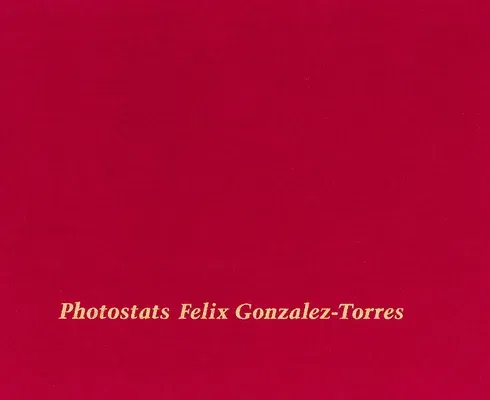Felix Gonzalez-Torres' text reveries on the intersections of the
historical and the personal, gathered for the first time in this elegant
clothbound volume
Felix Gonzalez-Torres (1957-96) is one of the most significant artists
to have emerged in the 1980s. An artist whose beautiful, restrained and
often mutable works are abundant in compelling contradictions,
Gonzalez-Torres was committed to a democratic form of art informed as
much by the aesthetic and conceptual as by politics. His work challenges
authority and our obeisance to it, dissolves the delineations between
public and private, and creates a rich, open field into which the viewer
is invited to complete works with her own inferences, imagination, and
actions.
The photostats are a series of fixed works with white text on black
fields framed behind glass to create a reflective surface bringing the
viewers' reflection into the work. Made at the height of the AIDS
crisis, these profoundly suggestive lists of political, cultural, and
historical references disrupt hierarchies of information and linear
chronology, asking how we receive and prioritize information, how we
remember and forget, and how we continuously create new meaning. The
photostats also recall the screens (the television, and now the
computer) which furiously deliver information from which we must parse
substance from surface and choose what to assimilate and what to reject.
This elegant volume is a discrete space in which to closely read the
photostats with sustained attention: it opens from both sides,
reproducing the framed photostats as objects on one, and from the other,
details of the texts can be read as writing. In between the two,
original writings by Mónica de la Torre and Ann Lauterbach, explore
adjacent territories, signaling the multiple entry points for
understanding the works.

